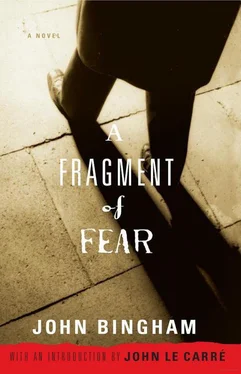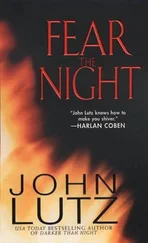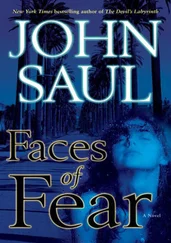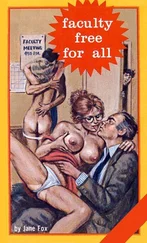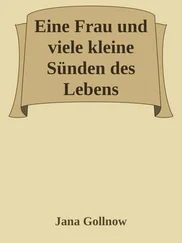John Bingham - A Fragment of Fear
Здесь есть возможность читать онлайн «John Bingham - A Fragment of Fear» весь текст электронной книги совершенно бесплатно (целиком полную версию без сокращений). В некоторых случаях можно слушать аудио, скачать через торрент в формате fb2 и присутствует краткое содержание. Жанр: Триллер, на английском языке. Описание произведения, (предисловие) а так же отзывы посетителей доступны на портале библиотеки ЛибКат.
- Название:A Fragment of Fear
- Автор:
- Жанр:
- Год:неизвестен
- ISBN:нет данных
- Рейтинг книги:3 / 5. Голосов: 1
-
Избранное:Добавить в избранное
- Отзывы:
-
Ваша оценка:
- 60
- 1
- 2
- 3
- 4
- 5
A Fragment of Fear: краткое содержание, описание и аннотация
Предлагаем к чтению аннотацию, описание, краткое содержание или предисловие (зависит от того, что написал сам автор книги «A Fragment of Fear»). Если вы не нашли необходимую информацию о книге — напишите в комментариях, мы постараемся отыскать её.
A Fragment of Fear — читать онлайн бесплатно полную книгу (весь текст) целиком
Ниже представлен текст книги, разбитый по страницам. Система сохранения места последней прочитанной страницы, позволяет с удобством читать онлайн бесплатно книгу «A Fragment of Fear», без необходимости каждый раз заново искать на чём Вы остановились. Поставьте закладку, и сможете в любой момент перейти на страницу, на которой закончили чтение.
Интервал:
Закладка:
The thing which I noted most of all, in the beginning, was her watchfulness. She would be thumbing through a magazine, or eating her meal, saying little, while her parents and I talked. Now and then, without moving her head, she would glance towards us, and if I glanced back she would drop her eyes. She wasn’t consciously flirting, she was discreetly observing.
It was difficult to know whether she was secretive or shy, and I didn’t care. I just knew that almost from the first moment I met her at a cocktail party I found her enchanting and wanted to marry her. I was thirty-two, no bleating lamb turned loose on the world, but Juliet was the only one who had ever aroused in me a feeling which justified the words “blind passion.”
Passion it was, entirely physical at first; and blind, because although men of mature age will usually regard the physical side of love as a big incentive, they will seek for some other ingredients before proposing marriage, such as gaiety, wit, a sense of humour; even kindliness, though this ranks lower in the scale; nor do I think that money counts for much with men, though women think it does.
When I met Juliet, I knew I would seek for none of these things. So it was blind passion. For better or for worse. I was aware of the gamble I was taking, but I wanted the woman and, all things being equal, I was going to have her, whether I regretted it later or whether I didn’t.
She wore glasses, not all the time, not at parties, or when she wished to look her best, as she thought; but when she was at the cinema or theatre, or reading, or driving a car.
Women with glasses attract me, as they attract many other men. Perhaps the greatest untruth ever spoken by a talented woman were the words of Dorothy Parker, “Men don’t make passes at girls with glasses.”
Men do. Hordes of them.
It’s not a question of a fetish, or sex deviation. Psychologically, it’s simple. Glasses indicate a physical weakness. Weakness arouses the protective instinct. Most men are suckers about being protective. It’s as clean and simple as that.
Juliet, glasses or no glasses, didn’t arouse any particular protective instinct in me when I met her. Her shy-sly withdrawn manner, and soft voice, and soft hands, and soft shoulder blades when we danced, they didn’t arouse any Sir Galahad feelings in me, I assure you, and what feelings they did arouse don’t need to be spelt out in this day and age.
I don’t believe that it was Helen’s face that launched a thousand ships and led to the sack of Troy. No woman’s face is worth the effort. But if you said that a thousand ships were launched because Helen had a shy-sly manner, a secretive, thoughtful way of glancing up at a man, and then away again, a supple, yielding body, and a skin like a magnolia leaf, then I would believe you, whether her face was beautiful, or, like Juliet’s, oval and classically undistinguished.
Let’s face it. Lust caused me to gamble on Juliet.
Good fortune alone decreed that she had those other ingredients which men hope for and sometimes get and sometimes don’t. So I was lucky. But I would have proposed to her anyway.
The frame of her horn-rimmed glasses was black, and perhaps too heavy for the delicacy of her face. Not that it matters at all.
It was her father’s ’phone call which set me off thinking about her, in fact, all three of them, as I dressed and boiled an egg and made some toast, and prepared to call at the police station.
I never made that visit because the door bell rang just after eight-thirty. I went to the door thinking it might be a parcels delivery or even a cable from Juliet in New York saying her time of arrival had been changed. But it was a police sergeant who had apparently cycled round from Kensington Police Station. He still wore his trouser clips.
I was surprised and pleased to see him, thinking that something suspicious might have been reported by a neighbour in my absence.
He was a middle-aged man, rather short as London policemen go, and when he took his helmet off I saw that he was bald on top, with grizzled hair above the ears.
He asked me if I was Mr. James Martin Compton, and I said I was, and asked him if he would like a cup of tea. He said, no, he had just had a cup. I asked him to sit down, but he said, no, he wouldn’t be very long, and he’d just as soon stand. I said:
“I am glad you called.”
To which he replied:
“Then I take it you were not altogether surprised, sir?”
“Well, yes and no,” I said. “The fact is I’ve been away for a few days, and I think-indeed, I’m sure-that somebody has been into this flat in my absence. I was going to call round at the Station and mention it. I thought they might as well know about it. Not that they can do anything about it.”
He had taken a sheet of paper from his pocket while I was speaking, and when I had finished he looked up from it, and around the living-room, moving his head slowly, his big, brown, good-natured eyes seemingly searching for some intruder who might still be there.
He looked at me for a couple of seconds, and then down again at the piece of paper in his hand, and cleared his throat. He said:
“Well, we can come to that later, sir. Whatever has happened here, or has not happened here, is not the reason for my visit, sir.”
I had the impression he was ill at ease.
“Meaning what?” I asked.
“Did you travel on the eight-twenty-five train last night from Burlington via Brighton to Victoria Station, sir?”
I had brought the breakfast tray into the living-room, with some tea, and toast, and the egg and the butter and marmalade. I was pouring out a cup of tea when he asked his question. I went on pouring, having no idea what was coming.
“Yes, I did.”
“Did you have in your compartment a female, possibly between the age of forty-five and fifty, dressed in a white mackintosh, and wearing a head-covering, attached beneath the chin?”
I added the milk to the tea, and nodded, and carefully replaced the little milk jug on the tray. I didn’t feel sick, but I felt a surge of dull pain in the stomach.
“Yes, I remember her,” I said, and remembered the tears welling out of the naive eyes, and although I also thought of the note she had given me, it was the thought of the grief I had witnessed which was uppermost in my mind.
The note, and its message, was a minor thing at that moment, a trivial, stupid little mystery compared to the major issues of the black night of the soul, of death by suicide, of my slap-happy remark about putting one’s head in a gas oven, and my tongue-tied inadequacy in the face of her distraught pleas for reassurance.
I saw the significance of her longing for an assurance about life after death and about whether she would see her friend again. Inadvertently, I had taken the wrong line.
By assuring her that she and her friend would survive the grave, and that she would see her friend again, I had given her the arguments she needed, the confidence which had been in the balance, about what would happen if she took her own life. If I had told her there was no life after death, she would have fought on, struggling to maintain the Awareness, which is life, against the Dreamless Sleep, which the atheists consider to be death.
It is surprising how fast such thoughts can pass through the mind. They flash between the time it takes to lift a milk jug and pour some drops into a cup; or during the time it takes to add two lumps of sugar. One moment you are happy, or if not happy, you are at least stabilised in the general turmoil of life, and the next you are sick with guilt and with a hopeless feeling of your own inadequacy to lead and inspire.
I felt sure, and still feel sure, and always will feel sure, that her emotions were genuine, even though the sergeant now said:
Читать дальшеИнтервал:
Закладка:
Похожие книги на «A Fragment of Fear»
Представляем Вашему вниманию похожие книги на «A Fragment of Fear» списком для выбора. Мы отобрали схожую по названию и смыслу литературу в надежде предоставить читателям больше вариантов отыскать новые, интересные, ещё непрочитанные произведения.
Обсуждение, отзывы о книге «A Fragment of Fear» и просто собственные мнения читателей. Оставьте ваши комментарии, напишите, что Вы думаете о произведении, его смысле или главных героях. Укажите что конкретно понравилось, а что нет, и почему Вы так считаете.
